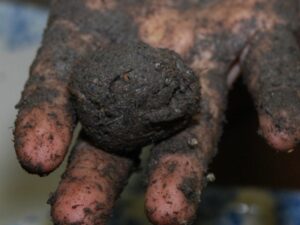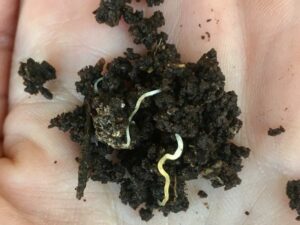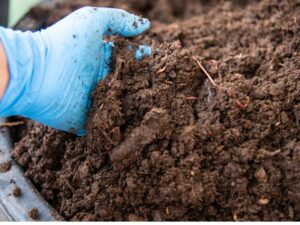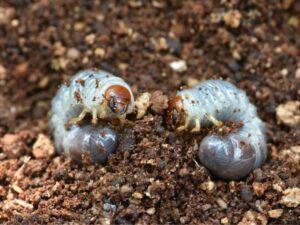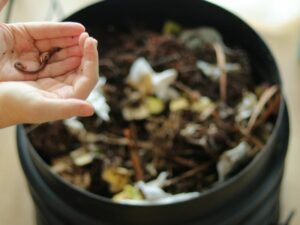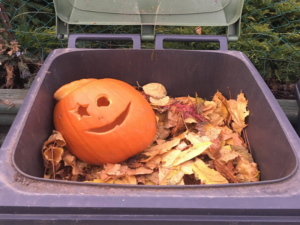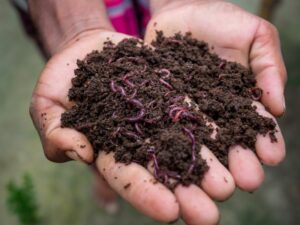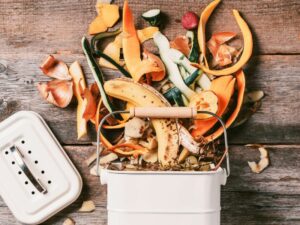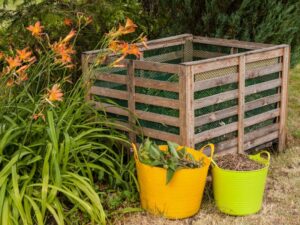From the Rotline: Are Super Dense Worm Castings Still Usable?
Yes! Thick, fudgy castings are as viable a soil amendment as finer, more granular castings. Denser castings may, however, necessitate some adaptations to traditional methods of harvest and application. First, an important distinction: – Castings/Vermicast = Worm manure – Vermicompost = A mixture of worm castings and decomposed or partially decomposed organic matter that has not been digested by the worm. Worm castings are…
Read MoreCritters in Your Compost! (ID Guide)
Compost is ALIVE! Curious about what’s living in your compost? The physical and chemical conditions in a compost heap seem logical if you think about what compost really is–a big pile of food for billions of minute organisms. These microorganisms have certain chemical requirements, primarily: carbon for energy, nitrogen to build proteins, and oxygen for…
Read MoreToo many slugs in my compost bin!
Do you have too many slugs in your compost bin? In a spray bottle, mix in 1 cup ammonia to one quart water. Go out at night and spray slugs wherever you find them. Ammonia will have no affect whatsoever on your compost. It will only kill slugs and snails. If you go slug hunting…
Read MoreWhat are all those different grubs in my compost heap and should I be worried?
Many people are alarmed to find grubs taking up residence in their compost heaps, and the large population can worry some. Don’t worry, these guys are probably nothing to fret about. Most likely, they’re doing exactly what you want them do, which is EAT! They consume your organic matter and in turn leave you an…
Read MoreWhat should you do if your worms are trying to escape the bin?
If your bin becomes too acidic, too moist, too dry, too compact, full of rotting food, full of food they don’t like, too hot, too cold or they just organize an expedition, your worms can attempt an escape from your bin. This thwarted escape plan (if your lid is on tight) ends up with many worms in…
Read More“Rotline Question” of the Week: Composting Pumpkins?
It is pumpkin season, but now that you don’t need your carefully carved pumpkin any more, don’t throw it away! Pumpkin is a great addition to both your compost and worm bin! To add pumpkin to either bin, it is important that it is broken down into smaller pieces. Chop, cut, or saw the pumpkin…
Read MoreFrom the Rotline: Where can I buy worms in San Diego?
For vermicomposting bins, the type of worms you need are “red wigglers” or “red worms” (Eisenia foetida). These worms, as well as other composting supplies, are available for purchase at Solana Center through the online store. Most garden centers sell them as well. If you are starting a Wriggly Wranch Worm Bin, you will need about 1…
Read More“Rotline” Question of the Week: Do I need to shred or grind my materials to compost them?
Shredding and grinding materials speeds up the process of composting. Smaller pieces will break down faster in your pile because it increases the surface area. This makes the material easier for bacteria to break down the material. You do not have to shred or grind your materials. The process will just take longer. If you…
Read More“Rotline” Question of the Week: How can I make my own compost bin?
Making your own compost bin at home can be easy and rewarding, it it doesn’t take a lot of material or know-how. Here are a couple of designs we recommend: Stackable wood bin: minimal carpentry skills needed, can use recycled lumber (as long as it is not treated) Wooden pallet bin: all you need are…
Read More
